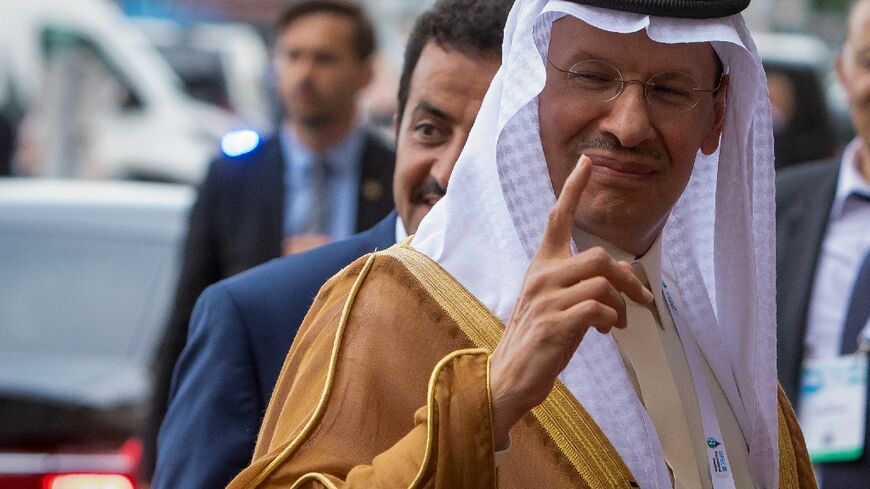Saudi Arabia on Wednesday dismissed talk of discord with oil ally Russia, praising their coordinated decisions to remove barrels from the market in efforts to prop up prices.
Oil producers are grappling with falling prices and high market volatility amid fears of global economic slowdown and the Russian invasion of Ukraine, which has upended economies worldwide.
On Monday, Riyadh said that it would extend a production reduction of one million barrels per day (bpd), which began in July, to August to boost prices.
At the same time, its ally in the OPEC+ group of oil producers, Russia, decided to slash exports by 500,000 bpd in August.
Speaking at an OPEC seminar in Vienna on Wednesday, Saudi Energy Minister Prince Abdulaziz bin Salman said the coordinated announcement was "quite telling".
"Part of what we have done with the help of our colleagues from Russia was also to mitigate the cynical side of the spectators on what is going on between Saudi Arabia and Russia," he added.
Moscow and Riyadh have not always talked with one voice regarding oil quotas, with Russia less enthusiastic than Saudi Arabia about cutting production as it needs the revenue amid its war in Ukraine and Western sanctions.
The latest cuts, however, have failed to drive up international oil prices.
Analysts say the kingdom needs oil to be priced at $80 per barrel to balance its budget, which is well above recent averages.
Brent North Sea crude, the international benchmark, was trading at around $75 per barrel on Wednesday.
Estimates show that Russia, on the other hand, is far from reducing its production by the volume promised, and is concentrating on Asian markets such as India and China.
Faced with these accusations, OPEC+ has called on "independent sources" to verify Russia's figures, said the Saudi minister.
Moscow has "committed to this exercise and they are going to be doing it on a monthly basis", he insisted.
Asked about the markets' muted reaction to the recent production cuts, Prince Abdulaziz called for patience as he deplored the prevailing "negativism".
"We will do whatever is necessary, whatever it takes" to stabilise prices, he added.
OPEC did not invite journalists from three major financial news outlets -- Bloomberg, Reuters and The Wall Street Journal -- to cover the talks.





